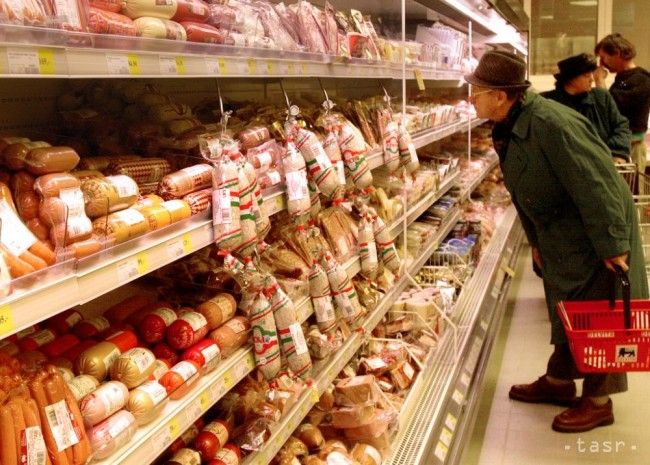Analyst: Slovakia Lacking in Food Self-sufficiency

Bratislava, August 13 (TASR) – Slovakia is far from being a self-sufficient country in terms of food, as the volume of food exports is one third lower than that of imports, said Slovak Farming Cooperative analyst Eva Sadovska on Monday.
According to Sadovska, relative self-sufficiency doesn’t mean that all food consumed in a country must necessarily be produced there, but the country should be able to produce enough food to be able to exchange it for other foodstuffs from other countries if such an interest emerges.
In terms of the food trade balance, Slovakia hasn’t been self-sufficient in food at any time in the past two decades, noted Sadovska.
Processed meat and meat products, including poultry, made up the highest share of imported food, exceeding €725 million in 2016, i.e. making up around one fifth of overall food imports (around €4 billion). Next came confectionery (cocoa, chocolate and other sweets) on €325 million in 2016, and dairy products on €307 million. Slovakia in 2016 also imported relatively large volumes of fruit and vegetables, worth more than €200 million.
Conversely, Slovakia is a strong exporter of cereals, legumes and oil seeds, all worth €528 million in 2016, representing around one fifth of overall exports (€2.75 billion) and exceeding imports of these commodities three times over.
Also strong in 2016 were exports of confectionery (€328 million) and dairy products (€232 million). Meanwhile, exports of processed meat and meat products, including poultry, reached €250 million in 2016.
Apart from the massive foreign trade deficit in meat, a huge disproportion could also be seen in fruit, with imports being six times higher than exports. This doesn’t only concern citrus and tropical fruit, but also fruit that is ordinarily grown in Slovakia.
When it came to vegetables and melons, imports were as much as nine times higher than exports in 2016.
Conversely, exports of livestock and raw animal products, such as raw milk, eggs and wool, were higher than imports in 2016.



